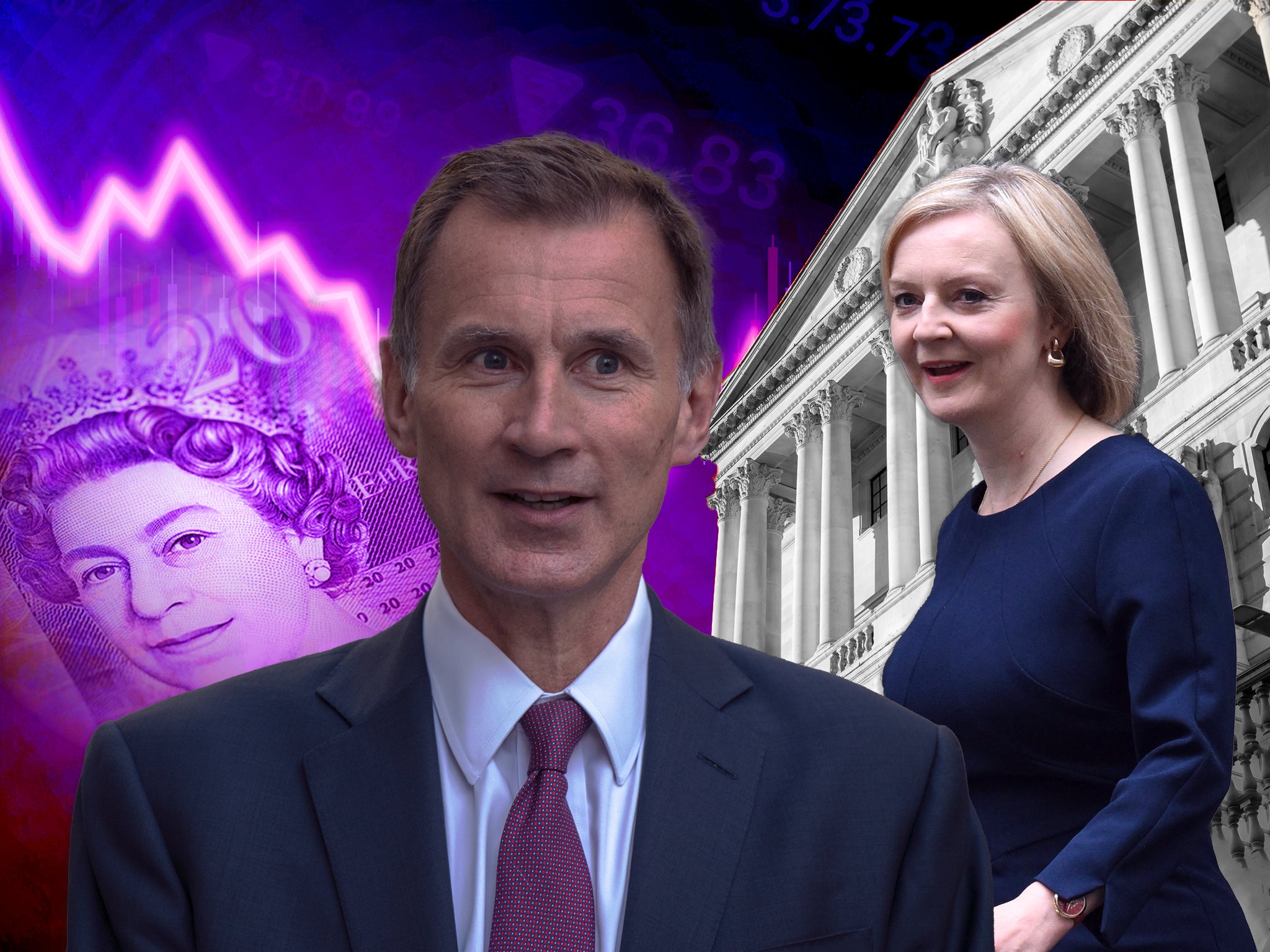Energy bill support could be cut after April 2023, says Jeremy Hunt
Government reviewing Liz Truss’s promise to cap prices for two years so scheme costs ‘significantly less’
Your support helps us to tell the story
From reproductive rights to climate change to Big Tech, The Independent is on the ground when the story is developing. Whether it's investigating the financials of Elon Musk's pro-Trump PAC or producing our latest documentary, 'The A Word', which shines a light on the American women fighting for reproductive rights, we know how important it is to parse out the facts from the messaging.
At such a critical moment in US history, we need reporters on the ground. Your donation allows us to keep sending journalists to speak to both sides of the story.
The Independent is trusted by Americans across the entire political spectrum. And unlike many other quality news outlets, we choose not to lock Americans out of our reporting and analysis with paywalls. We believe quality journalism should be available to everyone, paid for by those who can afford it.
Your support makes all the difference.Liz Truss’s promise to keep Britons’ household energy bills under control for two years has been ditched – as Jeremy Hunt announced support can only guaranteed until April 2023.
The new chancellor said the government would “review” the two-year cap on the unit price of energy to keep annual household gas and electricity bills at no more than £2,500.
In a shock move aimed at reassuring markets the government can balance the books, Mr Hunt said he had find a “new approach” to energy bills that will “cost the taxpayer significantly less”.
Mr Hunt said the two-year energy price guarantee had been “the biggest single expense in the growth plan”, suggesting the Treasury wanted to end universal support for all Britons after six months.
The chancellor said that beyond April “the prime minister and I have agreed it would not be responsible to continue exposing public finances to unlimited volatility in international gas prices”.
He said: “I’m announcing today a Treasury-led review into how we support energy bills beyond April next year. The objective is to design a new approach that will cost the taxpayer significantly less than planned whilst ensuring enough support for those in need.”
Mr Hunt added: “Any support for businesses will be targeted to those most affected, and the new approach will better incentivise energy efficiency.”
The Resolution Foundation estimated that the U-turn on energy could save the Treasury up to £40bn next year – but would allow the annual energy price cap to rise to £4,000 next April.
Labour and fuel poverty campaigners attacked the decision to pull medium and long-term support on energy bills, warning of a frightening “cliff edge” ahead.
“The humiliating climb-down on their energy plan begs the question yet again – why won’t they bring in a windfall tax on energy producers to help foot the bill?” said shadow chancellor Rachel Reeves.
Simon Francis, co-ordinator of the End Fuel Poverty Coalition, said: “The country was already facing a financial cliff edge in April due to plans to end other support packages, but this cliff edge has now become even steeper.”
Calling for financial support for the most vulnerable to be guaranteed, he added: “If people cannot trust the government to deliver the support it has promised, what trust can anyone have that they will keep people warm this winter and beyond?”
Mike Foster, chief executive of the Energy and Utilities Alliance, said the shock news “will surprise and worry millions of hard-pressed families”, adding that it would “heap huge financial pressure onto those already struggling to pay their bills”.
Tory chair Jake Berry had boasted on Sunday that the two-year price cap pledge “lowers energy bills for households, businesses and gives extra support to the most vulnerable”.

Mr Hunt also confirmed he is ditching “almost all” of the tax cut measures in predecessor Kwasi Kwarteng’s disastrous mini-Budget – including the planned 1p cut to income tax.
“I’ve decided that the basic rate of income tax will remain at 20 per cent and it will do so indefinitely until economic circumstances allow for it to be cut,” said the chancellor.
He also said the government would longer be proceeding with the cuts to dividend tax rates, the new VAT-free shopping scheme for non-UK visitors or the freeze on alcohol duty rates.
Confirming Truss’s U-turn on corporation tax – allowing it to rise to 25 per cent in April – Mr Hunt said that measures announced today will raise £32bn a year for the Treasury.
Markets appeared to be reassured by Mr Hunt’s announcements on Monday morning, ahead of a further statement from the chancellor setting out more details in the Commons around 3.30pm.
The pound has strengthened – rebounding by more than 1.2 per cent to 1.139 against the US dollar – while UK government bonds have rallied. The interest on long-dated bonds reduced to 4.32 per cent shortly after the announcement.
However, top economists estimated the government is facing a £60bn black hole in the public finances. The Institute for Government (IfG) said there was no real “fat” to trim from public sector budgets, as fears of a new age of austerity grow.
In his televised statement, the chancellor warned of more “tough” spending decisions to come. “Governments cannot eliminate volatility in markets but they can play their part and we will do so,” he said.
Subscribe to Independent Premium to bookmark this article
Want to bookmark your favourite articles and stories to read or reference later? Start your Independent Premium subscription today.





Join our commenting forum
Join thought-provoking conversations, follow other Independent readers and see their replies
Comments